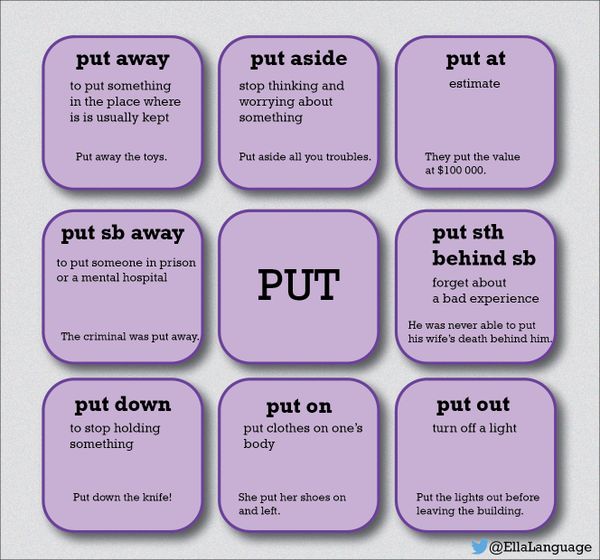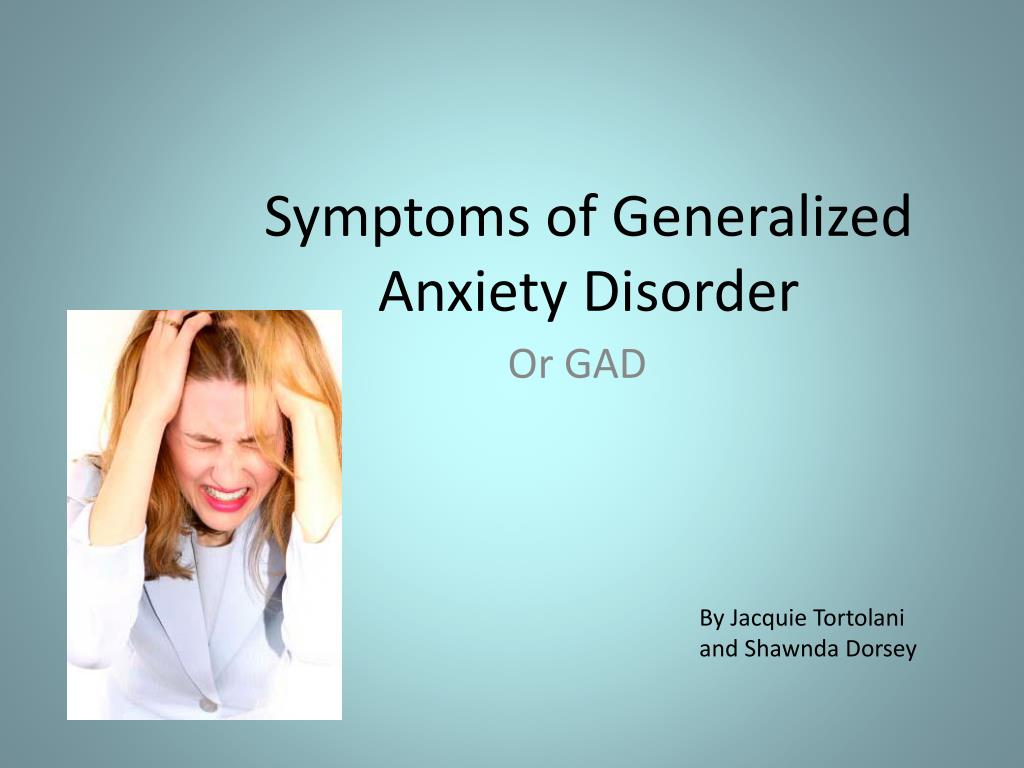Why do i get upset so easily
Why Do I Get Mad So Easily Over Nothing?
Anger can be a normal, healthy emotion that may help you feel more motivated, safer, and creative. However, when anger is excessive, misplaced, or repressed, it may cause tension in your life and impact your mental and physical health.
If you find that you frequently or readily experience anger, it may help to know how and why it’s arising. There are a few common causes of anger that you might relate to.
We Don’t Always Know How To Navigate Emotions Like Anger
Talk Through Your Feelings In Therapy
Potential Positive Aspects Of Anger
Anger may prompt us to care for our loved ones, commit charitable acts, and better ourselves. It may highlight areas of our lives that need attention and open a window to our passions.
Anger often motivates us and helps us perform under pressure. It can also keep us safe when we’re presented with dangerous situations. When expressed healthily, anger may be a positive presence in relationships, careers, health, and other facets of your life.
When Anger Becomes A Concern
While anger can be a positive emotion, frequent unhealthy expressions or hostile behavior can negatively impact several aspects of your life, including your career, relationships, or health.
You may find that anger affects your life if it leads to mental and physical health problems like anxiety, a weakened immune system, or high blood pressure. Anger may also cause interpersonal conflict, particularly when it becomes misplaced or repressed.
Frequently displaying anger instead of another emotion is one way anger can be a negative presence in your life. You may also have trouble controlling your anger when it arises. Excess anger may cause you to want to lash out at others or direct your feelings inward, creating tension and impacting your mental well-being.
Identifying The Source Of Your Anger
Knowing how anger arises may provide insight into how to address it.
Anger As A Secondary Emotion
Often, anger follows another emotion, such as sadness, stress, or embarrassment. For example, you may be experiencing the anger stage of grief, or you could be feeling stress related to work. We often repress emotions we’re uncomfortable experiencing and instead express them through anger.
While this can be normal, if you’re replacing other emotions with anger frequently, consider finding ways to process the original feelings.
If you’re going through the stages of grief, for example, consider working with a grief professional in processing your emotions. If you’re experiencing stress at work, think about how you can lighten your load or improve your work-life balance.
Mental Health Conditions
Additionally, anger is often a symptom of certain mental health conditions, including intermittent explosive disorder, bipolar disorder, and disruptive mood dysregulation disorder.
You may also experience irritability or frustration if you live with depression or anxiety. Learning more about your psyche by doing research or talking to a therapist might help you determine if a mental health condition is the root cause of your anger.
Relationship Concerns
There could also be issues in your relationships that create tension in your life. Conflict with a partner, relative, or co-worker could cause you to feel angry more often, especially if you feel you’re letting someone down or being mistreated.
For example, your boss may withhold a promotion you feel you deserve, or your partner may be upset with you for something you don’t think was your fault. If this is the case, consider discussing your concerns with the other person.
How To Manage Anger
Even when we understand the source of our emotions and how to address them, we can still experience problematic anger. The following anger management techniques may help prevent anger from negatively affecting your life. Studies show that effective anger management can also reduce chronic or physical pain.
Studies show that effective anger management can also reduce chronic or physical pain.
Mindfulness
Research shows that mindfulness can be an effective method of coping with anger. Mindfulness is the practice of staying present and bringing awareness to your thoughts, feelings, and surroundings. This practice can provide a calming effect in addition to helping you identify anger as it arises.
To practice mindfulness, focus your attention on the present moment while breathing deeply. Take note of the physical sensations you’re experiencing, the thoughts going through your head, your emotions, and your environment. Are you feeling happy, sad, or angry? As you become more mindful of your thoughts and emotions, you may quickly identify their source.
Breathing Exercises
Often, when we experience anger or tension, our breathing becomes more rapid. This rapid breathing can compound, causing us to become more stressed as cortisol is released. To combat this, consider utilizing deep breathing exercises.
To combat this, consider utilizing deep breathing exercises.
One deep breathing technique is box breathing, during which you breathe in for a four-count, hold your breath for a four-count, breathe out for a four-count, and hold your breath again for a four-count.
You can repeat this process as many times as you need. Deep breathing is often beneficial because it can be practiced wherever you are.
Progressive Muscle Relaxation
Progressive muscle relaxation and stretching help ease tension in the body, which could calm you down when you’re angry. During the process, you create tension in a muscle group or specific muscle, release that tension, then repeat the process in another area of your body.
You may do this by working your way up from your toes or down from your head. For example, you can start by tensing the muscles in your forehead, then relaxing them. Repeat that process with the other muscles in your head and work your way down to your neck, shoulders, arms, etc.
Exercise
Physical activity may relieve tension and boost your mood, which could help you reduce or avoid anger. Exercise has proven mental health benefits, which means it can be constructive if you experience anger related to stress, depression, or an anxiety disorder.
Exercise can also help you manage anger as it arises. While you may not want to engage in strenuous exercise while you’re upset, going for a walk can help you take your mind off the anger and give you a sense of calmness.
Journaling
Writing can be a valuable outlet for your emotions. Not only can you let your feelings out, but you may also discover specific triggers or sources of your anger. Studies show that expressive writing also improves mental health.
When you experience anger, consider writing down how you’re feeling, what led to those feelings, and how they manifested. The act of journaling can help you feel calmer at the moment and provide you with an instructive log of your emotions.
How Therapy Can Help
Feeling angry may impact your physical and mental health or self-esteem. If you’re ready to address anger, consider contacting a qualified mental health professional. You might consider online counseling if you’re not ready to commit to therapy away from home.
Research shows that online therapy can help decrease anger that is excessive or expressed in a potentially unhealthy way. A study published in a peer-reviewed journal looked at the efficacy of online therapy when helping individuals control problematic anger. Researchers found that treatment significantly reduced anger levels in participants after four weeks, indicating that short-term online therapy can produce benefits when it comes to anger management.
Many individuals struggle with anger management. If you’re ready to try reaching out for help, consider an online therapy platform like BetterHelp, which offers a vast network of licensed counselors.
We Don’t Always Know How To Navigate Emotions Like Anger
Talk Through Your Feelings In Therapy
Takeaway
Anger can be a complex emotion. However, it may be positive when expressed healthily. Once you recognize its source and take steps to reduce it, you may find that you aren’t experiencing anger as often.
If you’d like help understanding and managing your emotions, consider reaching out to a licensed therapist. With the proper guidance, you may work through your anger and live a happy, healthy, and productive life.
Why Am I So Angry: Causes, Symptoms, and Treatments
Is anger healthy?
Everyone has experienced anger. The intensity of your anger can range from profound annoyance to extreme rage. It’s normal and healthy to feel angry from time to time in response to certain situations.
But sometimes people experience an uncontrollable anger that often escalates, especially when the provocation is minor. In this case, anger is not a normal emotion but a major problem.
Anger comes from a variety of sources and can vary widely. Some common anger triggers include:
- personal problems, such as missing a promotion at work or relationship difficulties
- a problem caused by another person such as cancelling plans
- an event like bad traffic or getting in a car accident
- memories of a traumatic or enraging event
In other cases, an anger problem may be caused by early trauma or events in a person’s life that have shaped their personality. In some cases, hormonal changes can also cause anger, as can certain mental disorders.
Some signs that your anger is not normal include:
- anger that affects your relationships and social life
- feeling that you have to hide or hold in your anger
- constant negative thinking and focusing on negative experiences
- constantly feeling impatient, irritated, and hostile
- arguing with others often, and getting angrier in the process
- being physically violent when you’re angry
- threatening violence to people or their property
- an inability to control your anger
- feeling compelled to do, or doing, violent or impulsive things because you feel angry, such as driving recklessly or destroying things
- staying away from certain situations because you’re anxious or depressed about your angry outbursts
Anger itself doesn’t constitute a mental disorder, so there’s no set diagnosis for anger problems in the new edition of the Diagnostic and Statistical Manual of Mental Disorders (DSM-5).
However, it lists more than 32 mental disorders — such as borderline personality disorder and intermittent explosive disorder — that include anger as a symptom. It’s possible that your anger problem is caused by an underlying mental disorder.
If you don’t deal with your anger problem, it could one day escalate to a point where you do something extreme and regrettable. Violence is one possible outcome. You could get so angry that you end up hurting yourself or someone you care about without intending to do so.
If you suspect you have an anger problem, it’s important to seek professional help. Talk to your physician for a referral to a mental healthcare provider who will be able to help.
There are several helpful ways to control your anger at home.
Relaxation techniques
These include breathing deeply and picturing relaxing scenes in your mind. When trying to relax, breathe from deep within your lungs, inhaling and exhaling slowly in a controlled way. Repeat a calming word or phrase, such as “relax” or “take it easy.”
Repeat a calming word or phrase, such as “relax” or “take it easy.”
You may also want to visualize a relaxing experience, either from your memory or imagination. Slow, yoga-like exercises may also help relax your body and make you feel calmer.
Cognitive restructuring
Changing the way you think can change the way you express your anger. When a person feels angry, it’s often easy for them to think dramatically. It’s important to focus on expressing rational, rather than irrational, thoughts.
Avoid using the words “always” and “never” in your thoughts and speech. Such terms are inaccurate and can make you feel like your anger is justified, which makes it worse. These words can also hurt others who may be trying to help you arrive at a solution to your problem.
Problem solving
Anger can be caused by very real problems. While some anger is justified when something doesn’t go as planned, it’s not the anger that will help you fix the problem. The best way to approach a situation that’s making you angry is to not focus on the solution but to figure out how to address the problem.
You can do that by making a plan and checking in with it often so that you can check your progress often. Don’t get upset if the way the problem ends up getting resolved isn’t exactly the way you planned. Just make your best effort.
Communication
When people feel angry, they tend to jump to conclusions, which can be inaccurate. When you’re having an angry argument, slow down and think through your responses before lashing out. Remember to listen to the other person in the conversation. Good communication can help you resolve problems before your anger escalates.
A medical professional such as a psychiatrist or psychologist can recommend interventions to control your anger. Talk therapy can be helpful, as can anger management classes.
Anger management sessions can be taken in person or online. They can also be studied in a book. Anger management will teach you how to identify your frustrations early on and then resolve them. This may involve telling others, or yourself, what you need, while also staying calm and in charge of the situation (as opposed to having an angry outburst).
These sessions can be taken alone with a counselor or with a counselor accompanied by your partner or a group. The type, length, and number of sessions will depend on the program and your individual needs. This type of counseling can be brief or may last for several weeks or months.
When you begin the sessions, your counselor will help you identify your anger triggers and read your body and emotions for signs of anger. Noticing and checking in with these warning signs is one early step needed to help control your anger. Later on, you’ll learn behavioral skills and ways of thinking that will help you cope with your anger. If you have underlying mental health conditions, your counselor will also help you manage them, often making it easier to control your anger.
Anger doesn’t have to get in the way of you living a happy, full life. If you’re experiencing extreme anger, see your physician or mental healthcare provider. They will help you identify which professional therapies may be able to help you cope.
What’s more, there are many ways you can learn to control your anger at home. With time and a persistent effort, you’ll be able to more easily control your anger and improve your quality of life.
How to stop getting upset over trifles
More and more people today, mainly worry , worry and get upset over trifles, over trifles, wasting their precious time on small problems. The reason is that few understand how to stop getting upset over trifles , or simply don't want to start doing something to stop worrying and getting upset .
It all depends on the person himself, and what he wants, since experiences are mainly associated with a habit that needs to be replaced with another or completely eliminated. Psychologists have studied this problem, and today, in this article, they will provide you with only effective and verified information so that you stop worrying and get upset over trifles.
Find the reason why you are upset
To solve your problem as soon as possible, you need to make a list of what you are most often upset about. After that, it will be possible to stop getting upset over trifles, as you will decide the reasons for all this. Just take a piece of paper right now and write down what you are currently upset about. You will not believe it, but after you write the reason for your problem, it will either disappear by itself, or you will be ashamed that you wasted your time on such trifles. This happens often, for greater efficiency, you can make a list of what you are mostly upset about, then in the future, this will speed up the resolution of the problem.
Do not waste time on trifles
There are many problems in the world that help a person to develop, so why waste your time on various trifles. In order to stop getting upset over trifles , you need to realize what is most important for you in life, and understand whether it is connected with such a meaningless trifle. Of course, every person encounters trifles, but you need to live consciously and understand your values and goals that you are moving towards in life. The most important and invaluable human resource is time, which cannot be bought, exchanged or returned. The lived day, hour, minute, is already in the past and does not belong to us. The one who wasted an hour of time has not yet realized the value of life, so take care of your time and your life, since we are guests in this world and life is not eternal to waste it on trifles and trifles.
Of course, every person encounters trifles, but you need to live consciously and understand your values and goals that you are moving towards in life. The most important and invaluable human resource is time, which cannot be bought, exchanged or returned. The lived day, hour, minute, is already in the past and does not belong to us. The one who wasted an hour of time has not yet realized the value of life, so take care of your time and your life, since we are guests in this world and life is not eternal to waste it on trifles and trifles.
Change the way you think
The main reason why you get upset over trifles is that you have the wrong way of thinking. In your head, basically, a lot of small negative thoughts are overwhelmed, which can be easily replaced with big, but positive thoughts, with great desire. It has been proven that positive thoughts are stronger than negative ones, so it will not be difficult for you to defeat negative thoughts with your positive attitude. Do something every day that you enjoy and that brings you joy, as it creates positive thinking and a positive life. Thoughts are material, so be careful and try to fill your mind with only positive emotions and thoughts. You probably have those hobbies, work or hobbies that bring you joy, so do it and your problem will be solved.
Do something every day that you enjoy and that brings you joy, as it creates positive thinking and a positive life. Thoughts are material, so be careful and try to fill your mind with only positive emotions and thoughts. You probably have those hobbies, work or hobbies that bring you joy, so do it and your problem will be solved.
Start thinking big. Dream.
In order to stop being upset over trifles , you need to replace trifles with something serious and big. Life's trifles will immediately leave your life if you start thinking about great happiness and success. For example, create your dream, such that, even thinking about it, it brings you joy and happiness. You will even forget about all the trifles when you create a dream, since you simply will not have enough time and energy for them. Indeed, because of trifles, mostly those who do not have their dreams and think very rarely get upset. But when you create a dream and start to strive for it, then problems will begin to come into your life that will help you speed up the process and achieve your dream faster, provided that you solve such problems, knowing that each of these problems makes sense. Trifles and trifles do not carry any benefit, they only waste your time and your life in vain.
Trifles and trifles do not carry any benefit, they only waste your time and your life in vain.
Do what you love to do
The most effective way to stop getting upset over trifles is to do what you love. It has long been proven by scientists and noted by psychologists that those people who do their favorite thing feel joy and happiness in life every day, throughout their lives. Trifles, trifles, anxiety, frustration, fear and other negative life moments, leave forever from the life of someone who does what they love. But remember that it is not always possible to do only one thing you love all your life, as values and interests change. Therefore, you should learn to find yourself and your favorite business. It's very simple, you need to make a list of what you like in life, and start acting on this list, then your favorite thing will tell you that it's yours, because it won't let you sleep and will constantly remind you of yourself.
Program your brain for something else
The best way, not just to temporarily stop getting upset over trifles, but also to get rid of them and other unnecessary life trifles forever, is to program the brain. The practice of scientists and psychologists has proved that the person himself basically programs the material world for himself, with his desires and thoughts. Therefore, today, for a successful and happy life, it is worth studying the functions of the brain, since it is the brain today that is the most important tool that has not been fully studied to the end, which has helped many to achieve incredible results in life and get rid of unnecessary things. Program your brain so that it thinks only about good life moments, happiness and good luck, then after a while you will notice how your thoughts materialize. Try it today, start exercising daily and you will succeed.
If you have any additional questions, write them in the comments.
PSYCHOLOGICAL ADVICE
psyh - olog . en
Why do we get upset over trifles? Psychologists have named effective ways to get rid of anxiety
Every day a person is faced with a thousand tasks where something can go wrong. Routine is rarely pleasurable or inspiring, provoking every now and then a sense of anxiety over trifles. Minor troubles often occupy all thoughts, leaving no strength for serious matters. What to do in order to stop getting upset over trifles, psychologists told the correspondent of MIR 24.
“Often we make a molehill out of a fly, without wanting to. This process has well-founded reasons, they are called the basic mechanisms of the psyche. Deep within us, the problem is really significant. When we were children, any problem seemed big, bigger than ourselves. We have grown, but it still seems that we can’t cope,” says psychotherapist Alena Vitshas to .
To cope with such anxiety, it is important to respect the mechanisms within oneself, to provide oneself with internal support. Remember that you are no longer a small child, but an adult who is more of a problem, the expert advises.
“Find a soft toy that reminds you of yourself in front of a trifle that you are angry and annoyed about. Get her on your lap. Feel connected to that childish part of your psyche when the problem really seems to be bigger than you. Stay with this toy together, give vent to emotions, most likely, they will become apparent. Now put the toy behind your back. She is next to you, but now you can protect your childish and offended part of the psyche. You have helped your childish part, the inner child, to "show voice", and now it's time to solve the problem at the "adult level", from the adult part of the psyche. Respect your annoyance over trifles. It is a marker of your fatigue, burnout, hunger, lack of sleep, lack of vitamins and emotional instability,” Vitshas said.
A person with "iron nerves", who does not get upset over trifles and holds his own in any difficult life situations, has well-developed skills of arbitrariness of mental processes, reflection and intellectualization of mental functions. Such people are fully aware of what is happening around them and how they feel about it, adds clinical psychologist Oleg Dolgitsky.
“Normally, these skills should be formed during the period of 7-11 years. But many modern people have a problem with this, because they come unprepared for school. Where a reflection of their own experiences should be formed, teachers form attention and will so that children can sit in class for 40 minutes. No matter how strange it may sound, it is necessary to return to the period of the school curriculum and begin to get acquainted with classical fiction. Russian classics are ideal for this, where the characters constantly reflect on their own actions. The key to freedom from the shackles of our own experiences was given to us long ago by Dostoevsky and Tolstoy.
Getting to know the classic archetypal plots laid down by Homer and Shakespeare is best suited to curb Plato's "bad horse," he said.
Anxiety over trifles forms obsession with details. Because of it, a person sees a small range of solutions to a particular problem. Such limitations just form anxiety and nervousness, explains psychologist Andrey Aliev.
“A small problem grows into a monster that devours us from the inside. In order to avoid panic and anxiety when faced with a problem, it is necessary to come up with as many solutions to the problem as possible, from the most practical to the most unrealistic. The task is not to solve the problem, but to see different possible solutions. For example, you came to an interview for the job of your dreams. But suddenly you notice a stain on your jacket and realize that because of this you will not be hired. Everything is gone: anger and resentment begin to fill you, you feel that life is heading downhill, and you will end it under a bridge in poverty and hunger. So what do we do? We say to ourselves: “I have a stain on my jacket. What could be next? I won't be hired. What can I do? Erase the stain, take off the jacket, reschedule the meeting, tell about the stain right away, and so on,” he said.
So what do we do? We say to ourselves: “I have a stain on my jacket. What could be next? I won't be hired. What can I do? Erase the stain, take off the jacket, reschedule the meeting, tell about the stain right away, and so on,” he said.
In order not to feel excessive anxiety, learn to relieve stress. Otherwise, it will be difficult for you to think in a state of stress, comments psychologist Ilya Shabshin.
“You can breathe “in a square”: inhale four counts, pause four counts, exhale four counts, pause four counts. The “skier” movement helps a lot: you just need to imitate the movements of the arms and body that a person makes when he is skiing. Many people benefit from learning the basics of meditation. It is enough just to observe your breath for a few minutes. It becomes more even, calm, the head “clears up” and the difficult situation is assessed objectively, without exaggeration and dramatization,” he said.
Most often, people who make strict demands on themselves and strive to meet them worry about trifles. They are used to planning everything, keeping everything under control, so any changes are perceived extremely painfully. However, any plans can be upset both through their own fault and due to external circumstances, reminds psychologist, head of the Center for the Settlement of Social Conflicts Oleg Ivanov.
They are used to planning everything, keeping everything under control, so any changes are perceived extremely painfully. However, any plans can be upset both through their own fault and due to external circumstances, reminds psychologist, head of the Center for the Settlement of Social Conflicts Oleg Ivanov.
“You have to accept the fact that today you are not a perfect person. If plans change, you change with them, adapt, learn to be more flexible to circumstances. It is important to understand that unpleasant little things will always appear in life - this is how you need to “make friends” with uncertainty. If the feelings are connected, for example, with the fact that you were rude in a transport or a store, I advise such a trick. Just cover up an unpleasant episode with a pleasant moment. For example, go to your favorite coffee shop, where there is a good atmosphere and a barista brews delicious coffee. Get distracted by a conversation with a friend, call your mom, but don't complain, just talk about something good.














